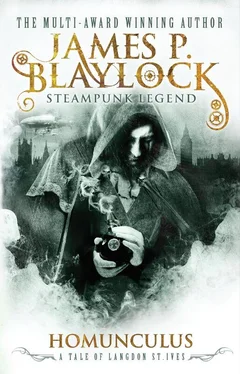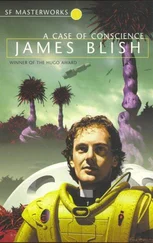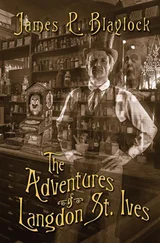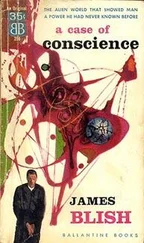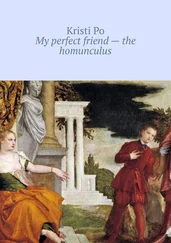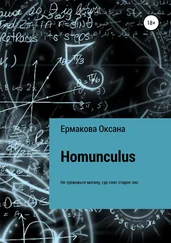James Blaylock - Homunculus
Здесь есть возможность читать онлайн «James Blaylock - Homunculus» весь текст электронной книги совершенно бесплатно (целиком полную версию без сокращений). В некоторых случаях можно слушать аудио, скачать через торрент в формате fb2 и присутствует краткое содержание. Жанр: sf_stimpank, на английском языке. Описание произведения, (предисловие) а так же отзывы посетителей доступны на портале библиотеки ЛибКат.
- Название:Homunculus
- Автор:
- Жанр:
- Год:неизвестен
- ISBN:нет данных
- Рейтинг книги:5 / 5. Голосов: 1
-
Избранное:Добавить в избранное
- Отзывы:
-
Ваша оценка:
- 100
- 1
- 2
- 3
- 4
- 5
Homunculus: краткое содержание, описание и аннотация
Предлагаем к чтению аннотацию, описание, краткое содержание или предисловие (зависит от того, что написал сам автор книги «Homunculus»). Если вы не нашли необходимую информацию о книге — напишите в комментариях, мы постараемся отыскать её.
Homunculus — читать онлайн бесплатно полную книгу (весь текст) целиком
Ниже представлен текст книги, разбитый по страницам. Система сохранения места последней прочитанной страницы, позволяет с удобством читать онлайн бесплатно книгу «Homunculus», без необходимости каждый раз заново искать на чём Вы остановились. Поставьте закладку, и сможете в любой момент перейти на страницу, на которой закончили чтение.
Интервал:
Закладка:
“We ate in Limehouse last night. I wore a disguise — a putty nose and a wig — but Narbondo laughed it to ruin. There’s no hope of disguising that damned hump of his. I’m not much given to metaphor, but it seems harder by the day to disguise my own loathsome deformities. It’s the thing in the box, the bottle imp, that’s caused it. If a man weren’t tempted, he wouldn’t fall.
“But such talk is defeatist. That’s what it is. Eternal life is within my grasp. If only we hadn’t bungled so badly in Limehouse. The costerlad was a jewel — wicked as they come. It was a service to dispose of him. I swear it. Damn Narbondo’s bungling. We’ve had a tremendous pair of shears forged at Gleason’s (they think me a tree surgeon) and can snip the head off…”
“And there the narrative breaks,” said St. Ives.
“He was interrupted, perhaps,” said the Captain.
Godall shook his head. “He couldn’t bear it, gentlemen. He couldn’t write the word.”
St. Ives glanced up at Jack, who would have been a child himself at the time that his father had written the confessions. He might be better off not hearing this. God bless Sebastian Owlesby’s doubts, thought St. Ives. They’re at once the horror of this and the man’s only redemption.
“Read the rest,” said Jack stoutly.
St. Ives nodded and resumed the narrative:
“The lad couldn’t have been above seven or eight. There was a fog, and not enough light from the streetlamps to amount to a thing. He was bound for the corner of Lead Street and Drake, I think, to buy a bucket of beer — for someone. For his father, I suppose. He had a pumpkin jack o’lantern, of all things, in his left hand, and the bucket in his right. And we walked in shadow twenty paces behind. The street was silent as it was dark. Narbondo carried the shears from Gleasons. He’d have me along, he said, to share the glory, and would have none of my waiting in the alley off Lead Street in the dogcart, which was, I still insist, the only sensible course.
“So there we were, a musty wind cold as a fish blowing up off the Thames, and the mists swirling deeper by the moment, and the grinning face of that lit jack o’lantern swinging back and forth and back and forth, its face appearing with a dull orange glow at the top of the arc of each swing. There was a sudden gust out of an unsheltered alley, and the lad’s lantern blew out. He disappeared in the night, and we could hear his bucket clank against the cobbles. Narbondo hopped forward. I grasped at his cloak to stop him — I could see the black truth in it, as that yellow, toothy light had blinked out in the pumpkin and on in my head — in my soul.
“I flew after him, and the two of us surprised the lad in the act of relighting his unlikely lantern. He stood up, a scream clipped off by those ghastly shears.
“The rest of it is a nightmare. That I fled out of Limehouse and returned in safety to my cabinet is testimony to the existence of dumb luck (if surviving that night of horror can be considered in any way lucky) and to the all-obscuring darkness and fog. It was as if evil had precipitated out of the solution of night and hid me like a veil. Narbondo wasn’t so lucky, but the beating he took couldn’t have been a result of his crime. If they’d known it, he wouldn’t have been thrown into the river alive. Perhaps he was beaten because of what he is, like a man kills a rat or a roach or a spider.
“So the murder was for naught. And the corpse from the gibbet lies moldering on the slab. Narbondo will go out again tonight — we must have the serum.”
St. Ives paused in his reading to drain half a bottle of ale. The Captain sat paralyzed in his chair, stone-faced. “Owlesby,” said St. Ives hurriedly, glancing first at the Captain, then at Jack, “was out of his wits. What he accomplished — what he committed — can’t be justified, but it can be explained. And in the most roundabout way can be excused — forgiven at least if you keep in mind the poison that had trickled into his soul. His discussion of the night in Limehouse is accurate — to a degree. But he dissembled throughout. That much is clear. He admits it in the pages that follow. And as I say, what he admits is all the more horrifying, but it explains a great deal. Poor Nell!”
The Captain seemed to stiffen even more at the sound of the name, and he clanked his heavy glass onto the wooden arm of his Morris chair, brown ale sloshing out onto the oak. St. Ives noted that Kraken had disappeared during the course of the narrative. Poor man, thought St. Ives, searching for his place in the journals. Even after fifteen years, the story of his master’s decline is too fresh for him. But the story had to be told. There was nothing for it but to go on, now that he’d launched out:
“I’m possessed by the most evil aching of the head — such that my eyes seem to press down to the size of screwholes, so that I see as through a telescope turned wrong end to. Laudanum alone relieves it, but fills me with dreams even more evil than the pain in my forebrain. I’m certain that the pain is my due — that it is a taste of hell, and nothing less. The dreams are full of that Limehouse night, of the toothy grin of that damned pumpkin, swinging swinging swinging in the fog. And I can feel myself decay, feel my tissues drying and rotting like a beetle-eaten fungus on a stump, and my blood pounds across the top of my skull. I can see my own eyes, wide as half crowns and black with death and decay, and Narbondo ahead with that ghastly shears. I pushed him along! That’s the truth of it. I railed at him, I hissed. I’d have that gland, is what I’d have, and before the night was gone. I’d hold in my hand my salvation.
“And when he failed, when he ran down East India Dock Road in that stooped half hop, terrified, it was I who set them on him. It was I who cried out to stop him. He little knows it. He’d outdistanced me. He was certain it was the police who shouted. And when they were beating him, by God I wasn’t slack. I was a ruin of failure and loathing and rot as I stamped on his hands and helped those drunken toughs drag him into the river where it splashed and roiled and slammed itself to fury below the Old Stairs, and I hoped by God to see him dead and picked by fishes.
“But there I was unlucky. Like the ghost at the feast, he came unlooked for in the night as I sat in a waking horror in the cabinet, listening to the thing in the box, staring, half expecting the tread of feet on the stair that would announce the end, the gibbet, the headsman’s axe. There it came. Three in the morning it was. Deadly silent. A tramp, tramp, tramp on the wooden stairs — very heavy — and a shadow across the curtain. A hunched shadow. The door fell open on its hinge, and the hunchback stood against a scattering of lights and a clearing sky with such a look of abomination about him that his collapse onto the tiles failed to eradicate it — just as it failed to eradicate my horror of him.
“I should have killed him. I should have slit his throat. I should have cut out the toad under his fifth rib and put it in a cage. But I didn’t. Fear kept me from it. Fear, perhaps, of my own evil. It seemed to me that his face was my own, that he and I were one, that Ignacio Narbondo had somehow drawn part of me in with him, consumed the only part of me that had ever been worth a farthing, and had left a strengthless, malignant pudding, poured into the chair where I sat until half past ten the next morning.
“And it was thus that Nell found me. I begged her to kill me. I hadn’t the courage to perform the deed. I pleaded. I told her of the costerlad. I swore at the same time that I was done with the pursuit — that the creation of life itself wasn’t worth hell. But I lied. The thing in the box can arrest entropy. He can separate tepid water into ice and steam if he likes. He can animate the carcass of a rat dead in a wall for months and dance it about the room like a marionette. He’s prodigiously old, and the only consequence of his thwarting time is his shrunken state. But he must be kept in a box.
Читать дальшеИнтервал:
Закладка:
Похожие книги на «Homunculus»
Представляем Вашему вниманию похожие книги на «Homunculus» списком для выбора. Мы отобрали схожую по названию и смыслу литературу в надежде предоставить читателям больше вариантов отыскать новые, интересные, ещё непрочитанные произведения.
Обсуждение, отзывы о книге «Homunculus» и просто собственные мнения читателей. Оставьте ваши комментарии, напишите, что Вы думаете о произведении, его смысле или главных героях. Укажите что конкретно понравилось, а что нет, и почему Вы так считаете.
